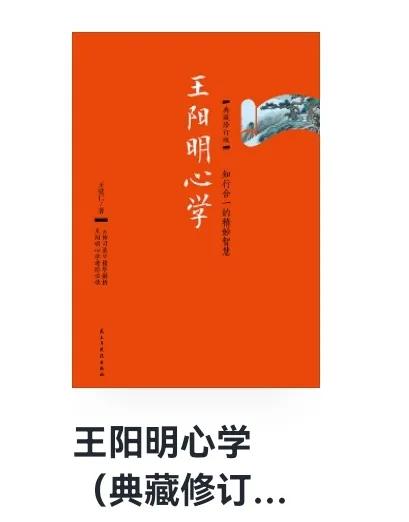The highest spiritual values in life are "Heavenly Reason" and "Conscience", which are like our needles in the sea, so as long as we adhere to such spiritual values, he can achieve "unity of knowledge and action", "movement and stillness are the same" and "body use is one source" at any time.
Because "knowing" itself is an action to construct the world of meaning (knowing is the idea of doing), so the heart and mind are all actions, "I am now saying that a unity of knowledge and action, just as people know where a thought is initiated, it is done" ("Transmission" volume 2); and "action" itself is the implementation and embodiment of a value (action is the kung fu of knowing), so such "action" is equivalent to the natural overflow of "knowledge".
Wang Yangming said that the heartbeat is "action", which does not mean that "action" is only the heart and mind. If you have never embodied your values through interaction with the outside world, it means that your world of meaning has not been established, so such "knowing" is "wandering in the air, hanging in the air to think"; and if you do not give your existence and the world a meaning that you identify with, your actions have no meaning and purpose, so such "action" is "ignorant and arbitrary".
To know is to act internally, and to "act" is to externalize ideas. The two are one and two, two and one.
Therefore, in Wang Yangming's dictionary, there is no "knowledge" without action, nor can it find a "action" without concept. This is the true essence of knowledge and action, and it is also the true connotation of the unity of knowledge and action.
"Body" refers to the essence, ontology, and nature, and "use" refers to phenomena, functions, and functions. "Body" has the characteristics of transcendence, universality, and constancy, and "use" has the characteristics of reality, concreteness, and change.
The "body" is constant, but the "use" can be ever-changing.
In terms of "body", everything is equal, and there is something unchanging in change; but in terms of "use", all things are very different, and that unchanging thing does not hinder the change of all things.
If someone has never seen the sea, and has never heard of the sea, and he wants to taste the sea, at this time, he does not have to swallow the whole sea into his stomach, but as long as he tastes a small drop, he knows the taste of the sea, which is called "even if it is used, the body is used."
"Moving" means moving, moving, and changing, and "static" means stopping, static, and unchanging.
"There is stillness in movement, and there is movement in stillness." And whether Yang Ming is in the form of "old monk into concentration" in a cave, or in the battlefield of "King Kong's angry eyes", he has never left the body of the heart, so from the "body", whether it is moving or still, it is "used in the body"; what Yang Ming does is the "hair and use popularity" of Tianli, that is, Tianli can be embodied in the cave where all kinds of people are silent, and can also be reflected in the battlefield where the sound is shocking, so from the "use" point of view, whether it is moving or static, it is also "the body is in use".
In this way, it is said that "the body uses one source".
Whether it is the unity of knowledge and action, the same movement and stillness, or the use of one source, it is to mix two opposite things into one. In this way, the kung fu will be effective, you can move the whole body with one hair, and you can achieve "my way consistently".
Whether it is "knowing/acting", "static/moving" or "body/use", in Yangming, they are mutually intrusive and inconsistent.
(Excerpt from Wang Jueren's "Wang Yang MingXinXue")

)